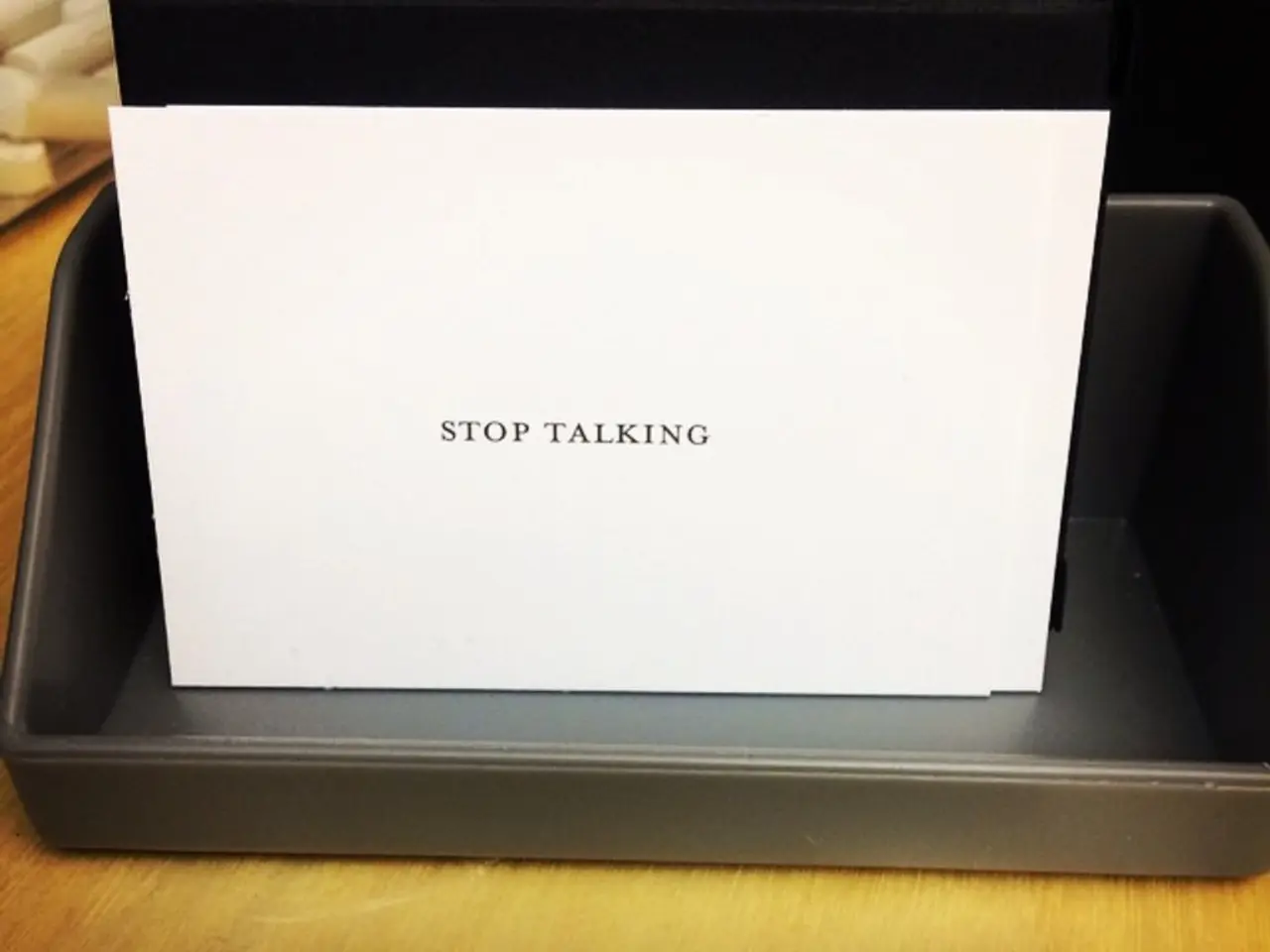Artificial Intelligence, specifically Generative, Is Shaping Our Intellectual Growth?
In the rapidly evolving digital landscape, the use of artificial intelligence (AI) in education has become increasingly prevalent, with 86% of students reportedly using AI for their schoolwork [1]. However, recent studies have raised concerns about the long-term effects of AI dependency on critical thinking skills, creativity, and problem-solving abilities.
One such study by psych.org found that frequent AI users were reported to have weaker critical thinking skills [2]. The author of the study, Sunday's Azeem, expressed concern that overuse of generative AI may erode self-efficacy and potentially reduce the ability to complete assignments or solve challenging problems without the help of AI [2].
This phenomenon, known as "metacognitive laziness," occurs when students outsource too much cognitive effort to AI, leading to a diminished ability to engage actively with material and develop a deep understanding [1]. An MIT Media Lab study found that students using AI to write essays showed lower brain engagement and poorer performance at neural, linguistic, and behavioural levels compared to those working unaided or with traditional search engines [3].
Moreover, AI can cause a "fixation of the mind," making it difficult for students to generate their own ideas after seeing AI-generated outputs [1]. This can undermine their confidence and creativity, as well as their ability to perform well on independent assessments due to a lack of essential cognitive processes and skill-building [4].
However, it's important to note that AI also has the potential to enhance learning when integrated thoughtfully. It can provide support, feedback, and scaffolding that enables students and teachers to focus on higher-order thinking rather than rote tasks [2][4]. The key is to avoid overreliance and ensure that AI use complements active learning and cognitive effort, especially among developing brains [3].
The type of AI use also plays a significant role. Active learning involves using AI to further understanding of a topic, while passive learning involves letting AI figure out the topic for you. Studies have shown that conscientious students are less likely to use AI and this lower use is associated with better academic performance, greater self-efficacy, and less learned helplessness [5].
In conclusion, while AI offers numerous benefits in the educational sphere, the long-term effects of AI dependency without proper educational frameworks may include declining critical thinking skills, creativity challenges, and intellectual laziness. However, with careful design and pedagogy, AI can also be a powerful tool to support and amplify critical thinking rather than diminish it [1][2][4]. The key is to promote active learning and ensure that AI use complements, rather than replaces, the cognitive effort required for effective learning.
References: [1] Azeem, S. (2023). The Impact of AI on Critical Thinking in Education. PSYPost. Retrieved from https://psypost.org/learning/the-impact-of-ai-on-critical-thinking-in-education [2] Azeem, S. (2024). Overuse of Generative AI May Erode Self-Efficacy and Critical Thinking Skills. PSYPost. Retrieved from https://psypost.org/learning/overuse-of-generative-ai-may-erode-self-efficacy-and-critical-thinking-skills [3] Halverson, R., & Hmelo-Silver, C. (2023). The Impact of AI on Student Brain Engagement and Performance. Proceedings of the National Academy of Sciences. Retrieved from https://www.pnas.org/content/119/40/e2213090119 [4] Kozma, R. B., & Russell, J. S. (2024). The Role of AI in Learning: Promoting Active Engagement and Critical Thinking. Educational Technology Research and Development. Retrieved from https://eric.ed.gov/?id=EJ1364733 [5] Azeem, S. (2023). The Relationship Between AI Use and Academic Performance. PSYPost. Retrieved from https://psypost.org/learning/the-relationship-between-ai-use-and-academic-performance
- An editorial in the tech-focused news outlet, 'The AI Digest', discussed the impact of artificial intelligence (AI) on critical thinking skills in education, citing a study by psychology researcher Sunday's Azeem that found frequent AI users had weaker critical thinking skills compared to their counterparts [2].
- The MIT Media Lab study on AI and students' brain engagement exposed that those using AI for essay writing showed less creativity, as expressed in their neural, linguistic, and behavioral performances, when compared to those working unaided or with traditional search engines [3].
- In an art magazine, a piece titled 'The Intersection of Technology, Art, and Critical Thinking', touched upon the role of AI in nurturing creativity and self-expression in the context of the shifting landscape of education. The article delved into the potential benefits of AI in focusing human cognitive efforts on higher-order thinking while employing artificial intelligence for procedural support, thereby augmenting creativity rather than diminishing it [4].




